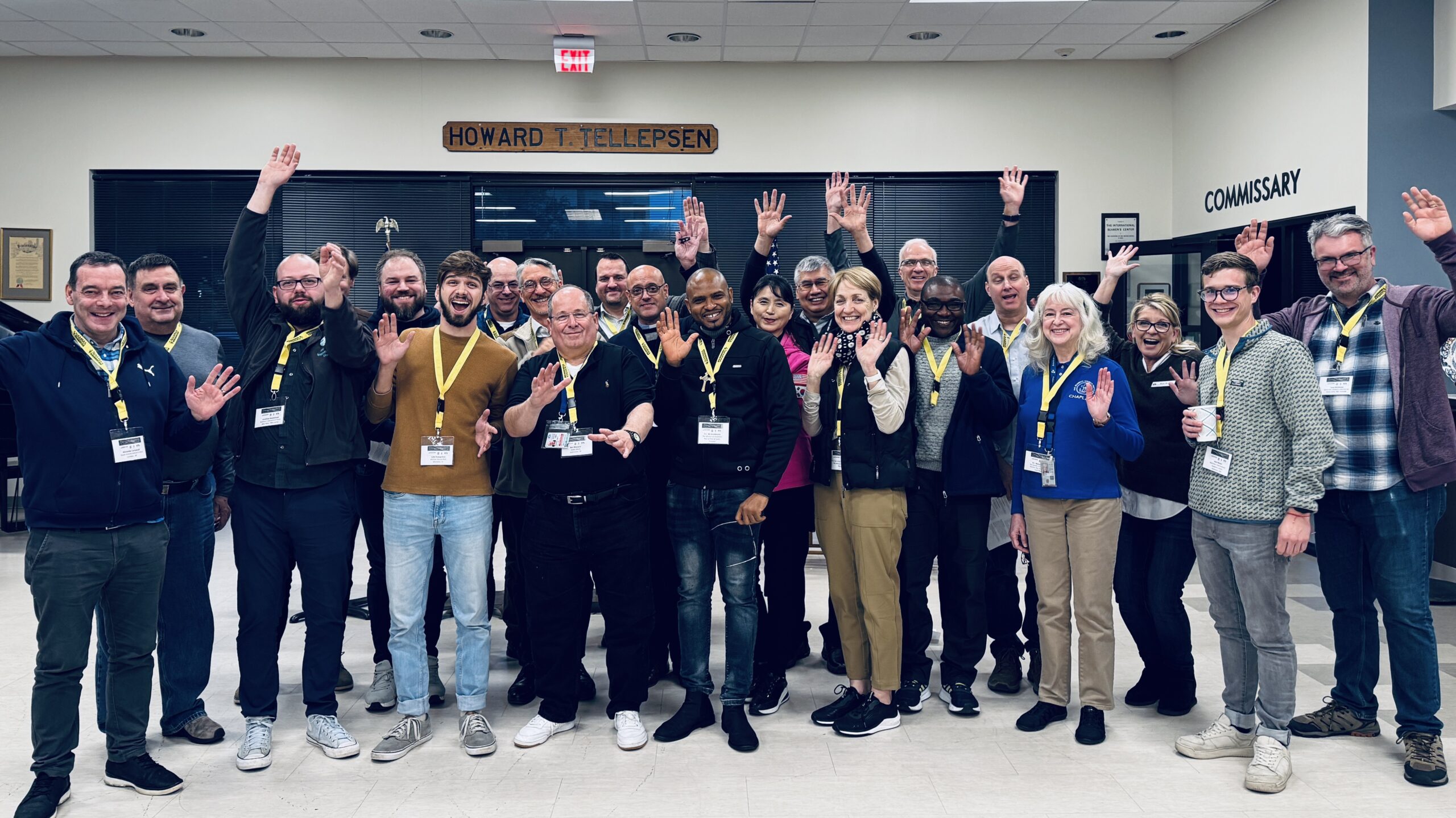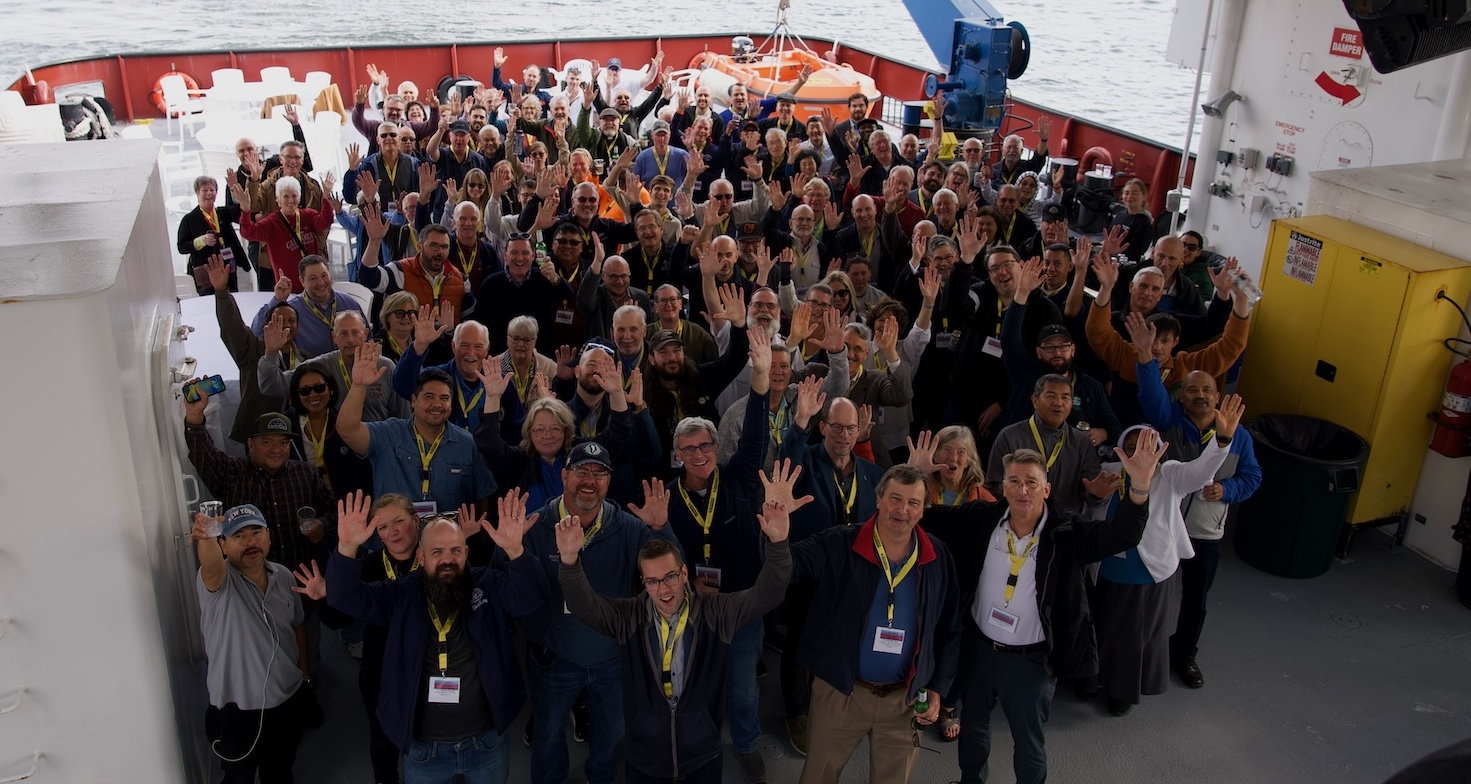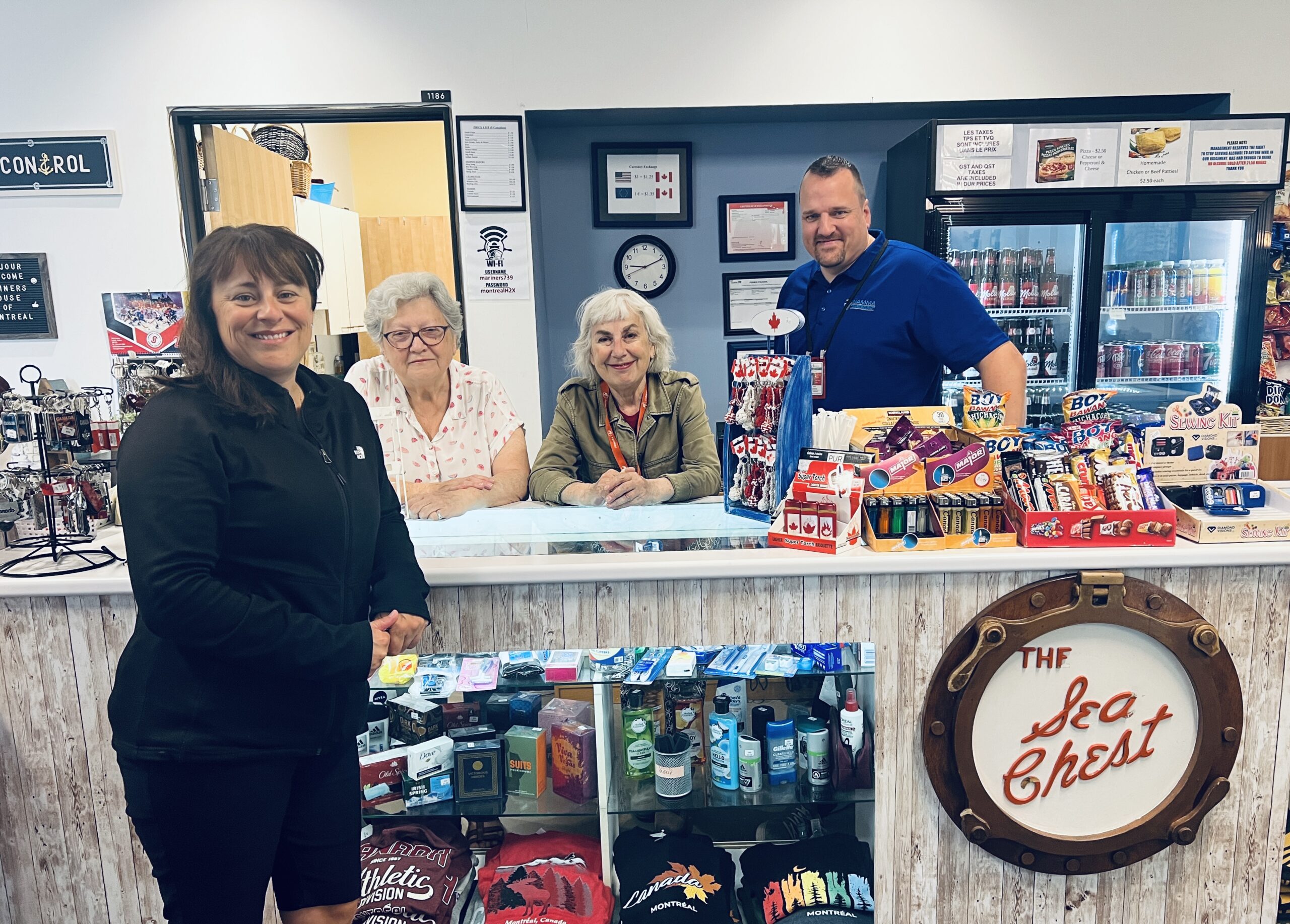by Susan Huppert, NAMMA
The Baltimore International Seafarers’ Center continues to serve seafarers during Christmas thanks to a generous gift of $750US from the International Transport Workers’ Federation (ITF) Seafarers’ Trust. The funds applied for by the International Christian Maritime Association to the ITF Seafarers’ Trust were granted specifically for festive outreach to seafarers. The Baltimore mission, affiliated with The Mission to Seafarers network, operates in the Port of Baltimore and normally sees about 1,700 seafarers during their Christmas giving season. The ITF Seafarers’ Trust funding is extremely helpful.
“The extra ITF Seafarers Trust funds have allowed us to give to an additional 100 seafarers,” said the Reverend Mary Davisson, director and chaplain.
Without delay, Davisson began to order items to include in the Christmas packages for seafarers. Something to bring some extra cheer in this holiday season away from home. Basic needs are the target.
“We selected high quality hand cream and lip balm,” she said. “These gifts are quality personal care items as many of these workers are commonly from warm climates working in extreme weather on ships.”
A toothbrush and toothpaste may seem a dismissible Christmas gift, but not so. The practical toiletries included in the gifts are an expression of a greater global outreach of caring for those who work on ships, fishers and families. When combined with something to read, hand-knit stocking caps, socks or snacks, even a toothbrush means someone cares.
“We have to be selective also,” said Davisson. “We never have enough. We try to give to those who may not be in a port at Christmas or may not have received a gift from a previous port.”
Before the global pandemic, the practice of Christmas deliveries when gifts were brought onboard was to visit with seafarers or the captain, perhaps gathering together in the mess room. Due to the lack of opportunity to move about, Davisson and dedicated volunteers deliver at the top of the gangway with little time for reaction or interaction. Eye contact means a lot. Beyond facemasks and the loud rumble of the ship, the chaplain and volunteers can see that seafarers are very grateful.
“If we can’t say as much as we want to with words, we can express our care in tangible ways.
These gifts help to bridge conversations,” she said.
Many seafarers who will be at sea over the holiday season will have been away from home for more than a year already due to the pandemic. Their dangerous profession, compounded by COVID-19 restrictions finds isolation as a heavy cloud onboard leaving them particularly vulnerable to depression and emotional stress when far from families and holiday traditions.
Port ministries seek to change that through electronic communications between chaplains and those on board and through moments like these.
The Christmas gift-giving programs reflect the greater work of the Baltimore International Seafarers’ Center of caring for seafarers including providing access to Wi-Fi, emotional support and advocacy when needed.
This personal extension from land to sea inspires community groups to get involved. Each year, organizations and individuals partner giving literature, homemade stocking hats, or socks. With the addition of the ITF funds it clearly represents a broad community of support.
“I really like that the community gifts are combined with the ITF Seafarers’ Trust grant funds,” said the Episcopal director. “It reflects the diversity of those who care about seafarers.”
Further south another seafarers’ center serving one of the largest ports on the U.S. East Coast also benefitted from grant funds.
“When ITF stepped up, it fell right into place,” said Charleston Port and Seafarers Society mission administrator, Clark Cromwell.
In Charleston, stevedoring businesses, sailing and kayaking clubs, port-related organizations, churches and others join to fill gift boxes. In a normal year, these ministry partners receive empty plastic boxes from the seafarers’ center and return them filled with specific gifts for seafarers. This year, the volunteers were willing and waiting, but there were no funds for the boxes until Cromwell applied for the global grant funds and also received $750 from the ITF Seafarers’ Trust via ICMA.
With the ITF Seafarers’ Trust grant, seafarers in Charleston will have gifts this year.
“It was a big relief,” said Cromwell. “We had tried to address the deficit in other ways, but it didn’t cover.
“The enthusiasm to fill the boxes among businesses and congregations has been surprisingly good,” said Cromwell. “We have already given out 3,700 boxes to be filled. Last year, All Saints Lutheran took 50 boxes to fill. This year they have filled 77 so far.
“It has been great to accommodate a higher response for gift boxes than normal at this difficult time. The need and opportunity for ministry to these brothers and sisters (seafarers) is tremendous,” he said.
For some households giving to seafarers began as an Advent project and became a great teaching for children, according to the Reverend Jeff Wallace, chaplain to the seafarers and associate pastor at St. George Episcopal Church in Summerville, South Carolina.
“It’s incredible, the impact these gifts makes on the seafarers,” he said. “They are as excited as kids at Christmas, always received with a smile and appreciation.”
The Charleston Port and Seafarers Society began to distribute the filled gift boxes to ships December 1. Each includes a holiday greeting from the ITF Seafarers’ Trust and a note acknowledging seafarers’ sacrifices and thanking them for their service.
Photo: Courtesy of Rev. Mary Davisson, The Mission to Seafarers, Baltimore.





